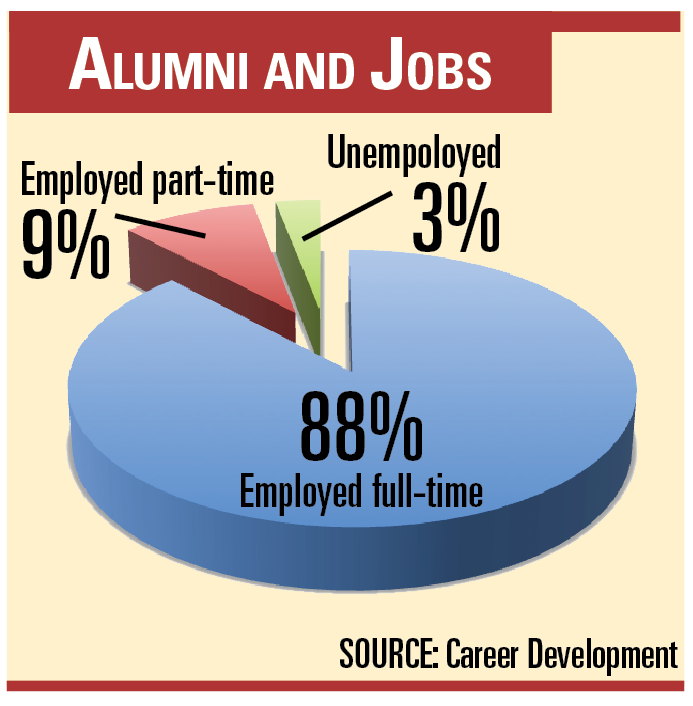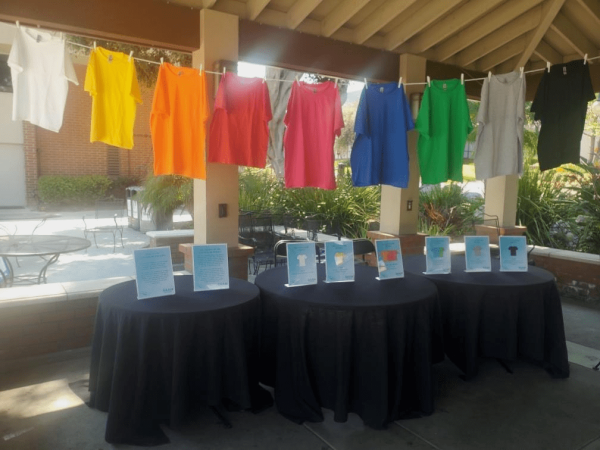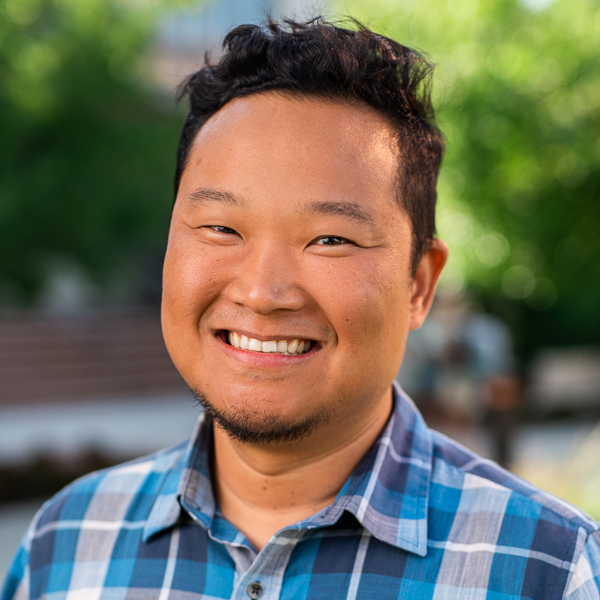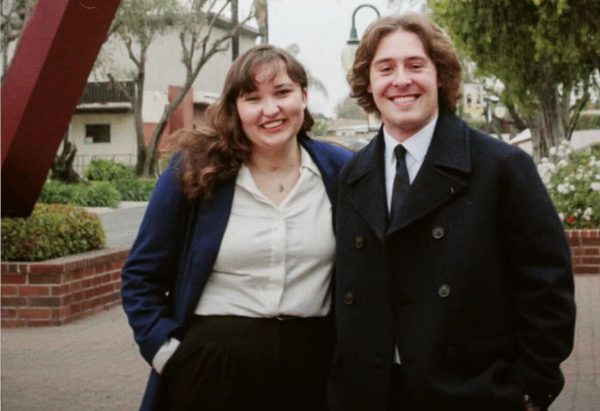Seniors work toward their passions after graduation
Biolans contemplate post-graduation plans.
May 15, 2013
A survey released May 9 by Career Development shows that a year after graduation, 88 percent of alumni are working full time, while 9 percent are working part time and 3 percent are unemployed. The total percentage includes students who are working multiple jobs, enrolled in graduate school, performing military service, volunteering on a full-time basis or not actively seeking employment.
The last few weeks of school are a hectic time for most students, especially for graduating seniors. Some will choose to utilize their newly acquired degree by working within their major; others will attend graduate school beginning the following fall after graduation. Others will take time off before beginning the next phase of their life journey.
Communications major and senior Adriana Detrinidad says her plans will ultimately take her to graduate school to earn her Master’s in communication.
“After grad school, I want to work within my major,” she said. “Grad school is something I am going to dedicate the next few years to getting into.”
In the interim, Detrinidad will be preparing to apply by readying herself for the Graduate Record Examination, the standardized test used to assist in determining admission to graduate school.
“I will be researching different grad schools and applying for them between the months of October and February,” she said. “While I am doing all of this, I will be working a part-time job.”
She expressed some uncertainty as to the type of experience she will be gaining in this capacity.
WORKING IN FIELD OF STUDY VS. WORKING FOR INCOME
“I’m not sure if I will be working within my communications studies field or if it will be a job at a Starbucks or a Jamba Juice — something that will bring in some income,” Detrinidad said.
Senior Sara Anderson, who graduates this month with her degree in sociology, plans to go into social work.
“I want to work with children and families,” she said. “One of the jobs I have interviewed for is at a group home in San Jose, where I would be working with troubled youth.”
Anderson said she has applied for three positions in order to work in her sociology field after graduating. She attributed her opportunity to apply for the jobs to a service at school.
“I found them on the Biolalink over Interterm. They were what I was looking for: good, entry-level social work jobs,” she said.
Anderson expressed a desire to make social work a career, despite monetary hardships that such a decision might bring.
“For social work there are a lot of jobs available, but they are not necessarily paid very well,” she said.
She went on explain how she plans to add to her credentials in her work field.
“In the near future I will be pursuing my Master’s in social work, because if I want to be an actual social worker, I need to have my Master’s,” Anderson said.
STUDENTS VALUE PASSIONS OVER MONEY
Detrinidad and Anderson both made it clear that their desire to find work had less to do with money and more to do with their passions.
“I know some students who chose their major because the jobs were lucrative, and I think that’s really sad,” Detrinidad said. “I think it’s a shame that you would end up spending so much time at a university and so much energy just to get their diploma so they can have money.”
Anderson reflected on her experience in preparing for work after college, acknowledging her belief in God’s command over her life.
“We are not in charge of our future, but I know that God is in control and that God knows my future, and that in the midst of frustration God uses those moments to mold me,” she said.







